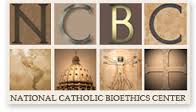February 5, 2016
The National Catholic Bioethics Center is dismayed by the decision of the United Kingdom’s Human Fertilisation and Embryology Authority (HFEA) on February 1, 2016, to license a radical new form of research on human embryos by the Francis Crick Institute. Science and technology, and in particular new and powerful forms of technology, can be used to increase human knowledge and promote healing, but only if used ethically. The protocol approved by the HFEA fails this test.
The Francis Crick Institute applied for the license in fall 2015. A statement on the Institute’s website explains that they intend to use a new gene-editing technology, called CRISPR/Cas-9, to study the effects of specific genes in human embryological development. CRISPR/Cas-9 is the most powerful gene editing tool ever developed, able to identify, cut, and replace genes in DNA, including human DNA, with scalpel-like precision. The goal of the research protocol is to improve clinical treatments for infertility.
Institute researchers claim to have addressed the significant ethical issues inherent in this research. They contend the research protocol is justified because the embryos are “left over” from assisted reproductive technology attempts; because the parents of these embryos have given informed consent; and because the embryos will be destroyed after seven days (well within the HFEA’s 14-day window for human embryo research) rather than being allowed to be born with significant iatrogenic birth defects.
Appealing to such considerations may prove convincing or comforting to some. However, none of these considerations addresses the central ethical principle and harm at hand. This type of research involves the deliberate use and destruction of human beings at the embryological stage of life. The embryos used by scientists will be disabled by having their genes shut down one at a time to see how this affects their human development.
The research licensed by the HFEA involves a profound disregard for human life and for human dignity. The guidance of the Instruction Donum vitae (1987) is still relevant today and applicable in this case:
[T]he fruit of human generation, from the first moment of its existence, that is to say from the moment the zygote has formed, demands the unconditional respect that is morally due to the human being in his bodily and spiritual totality. The human being is to be respected and treated as a person from the moment of conception; and therefore from that same moment his rights as a person must be recognized, among which in the first place is the inviolable right of every innocent human being to life. This doctrinal reminder provides the fundamental criterion for the solution of the various problems posed by the development of the biomedical sciences in this field: since the embryo must be treated as a person, it must also be defended in its integrity, tended and cared for, to the extent possible, in the same way as any other human being as far as medical assistance is concerned.
In addition to these direct harms to the human embryos involved, the Crick Institute research will have tremendous implications for how CRISPR/Cas-9 will be used for other experimental and clinical applications in other human beings. As a biotech tool, CRISPR/Cas-9 can and should be used with the informed consent of patients to treat diseases and injuries. However, influential scientists, scientific journals, and bioethicists are openly discussing the use of CRISPR/Cas-9 for more radical interventions, including inducing genetic changes in human embryos and introducing genetic changes that can be passed down to future generations. These kinds of proposed interventions cross substantive ethical lines. At a minimum, it is essential to have greater certainty about the long-term implications and a broader ethical consensus before moving forward.
Unfortunately, the United Kingdom’s Human Fertilisation and Embryology Authority has a long track record of approving unethical research protocols, including lethal research on embryos (1990), human cloning (2004), three-parent embryos (2005), and human-animal hybrids (2007). The CRISPR/Cas-9 research protocol currently being promoted by the Crick Institute is profoundly unethical due to its destructive use of human embryos and the unprecedented use of new gene-editing technology on human beings. This research should be condemned and stopped.
The Ethicists of The National Catholic Bioethics Center











